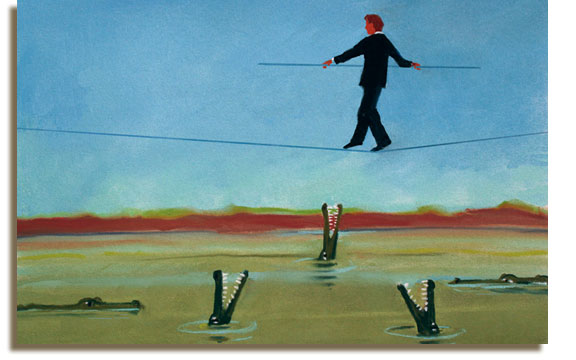A couple of quick me-links:
Last minute, preachers, I’m at The Hardest Question this week with pieces on the gospel and Acts.
I also did a webinar on Sabbath for the Presbyterian Outlook this week. I covered some stuff that’s in the book but a lot that’s not, including how to get congregations thinking about and practicing Sabbath. You can order a DVD here.
Enough about me. Here we go!
~
The Politics of Play - Orion
A plea for a little more free-range parenting:
Some schools forbid children to play in the snow for fear of legal action in the event of an accident. We live in a litigious age, but this is about far more than that: it is about the kind of children we are creating.
By insidiously demanding that children always seek permission for the most trivial of actions, that they must obey the commands of others at every turn, we ensure that children today are not so much beaten into obedience as eroded into it. A risk-averse society creates a docility and loss of autonomy that has a horrible political shadow: a populace malleable, commandable, and blindly obedient.
The author also talks about a real-life Lord of the Flies incident… that didn’t end like Lord of the Flies:
One day, in 1977, six boys set out from Tonga on a fishing trip. They left safe harbor, and fate befell them. Badly. Caught in a huge storm, the boys were shipwrecked on a deserted island. What do they do, this little tribe?
They made a pact never to quarrel, because they could see that arguing could lead to mutually assured destruction. They promised each other that wherever they went on the island, they would go in twos, in case they got lost or had an accident. They agreed to have a rotation of being on guard, night and day, to watch out for anything that might harm them or anything that might help. And they kept their promises—for a day that became a week, a month, a year. After fifteen months, two boys, on watch as they had agreed, saw a speck of a boat on the horizon. The boys were found and rescued, all of them, grace intact and promises held.
If anyone knows more about this story, please let me know. I would love to read more. Google didn’t turn up much.
~
Principal Fires Security Guards to Hire Art Teachers-and Transforms Elementary School — NBC
Thanks to Marci Glass, who said, “This is what it means to live the future you envision.” Yes:
In a school notorious for its lack of discipline, where backpacks were prohibited for fear the students would use them to carry weapons, Bott’s bold decision to replace the security guards with art teachers was met with skepticism by those who also questioned why he would choose to lead the troubled school.
“A lot of my colleagues really questioned the decision,” he said. “A lot of people actually would say to me, ‘You realize that Orchard Gardens is a career killer? You know, you don’t want to go to Orchard Gardens.’”
But now, three years later, the school is almost unrecognizable. Brightly colored paintings, essays of achievement, and motivational posters line the halls. The dance studio has been resurrected, along with the band room, and an artists’ studio.
Swords into ploughshares.
~
How Not to Die — Atlantic
My friend Shala linked to this article on her Caterpickles blog. Not a happy topic, but an important one.
Dr. Angelo Volandes is making a film that he believes will change the way you die. The studio is his living room in Newton, Massachusetts, a suburb of Boston; the control panel is his laptop; the camera crew is a 24-year-old guy named Jake; the star is his wife, Aretha Delight Davis. Volandes, a thickening mesomorph with straight brown hair that is graying at his temples, is wearing a T-shirt and shorts and looks like he belongs at a football game. Davis, a beautiful woman of Guyanese extraction with richly braided hair, is dressed in a white lab coat over a black shirt and stands before a plain gray backdrop.
“Remember: always slow,” Volandes says.
“Sure, hon,” Davis says, annoyed. She has done this many times.
Volandes claps to sync the sound. “Take one: Goals of Care, Dementia.”
As a pastor I would love to get my hands on the video series Dr. Volandes is creating.
~
A Prayer for Children of All Ages — Ashley-Anne Masters
Mother’s Day is coming up, and then Father’s Day. Both of these days can be very hard for folks; Ashley-Anne offers a prayer for use in worship:
God our perfect parent, we pray:
For those who will send flowers to their mom and those who will put flowers on their mom’s grave
For those who wish their children could have met their grandparents and those who will tell their parents that they will soon be grandparents
For those who will make new memories and those who will carry on old traditions
For sons named after their fathers and for those who don’t know their father’s name . . .
More at the link.
~
On Craftsmanship: The Only Surviving Recording of Virginia Woolf’s Voice — Brain Pickings
True confession: I didn’t listen to the whole thing. But it’s very moving to hear her voice.
~
Speaking of writing:
A Backwards Pitch — Ruth Everhart
I highlighted Ruth’s book, Chasing the Divine in the Holy Land, a few weeks ago on Link Love; I like how she puts into practice Seth Godin’s advice to “say it backwards”:
My book about pilgrimage is not for everyone.
~ If you venerate icons you may find this book to be irreverent, even off-putting.
~
And a few things I posted on social media earlier this week, but they bear repeating:
9 Questions to Ask about Social Media — 99U
- Is it necessary to share this? Will it add value to my life and for other people?
- Can I share this experience later so I can focus on living it now?
- Am I looking for validation? Is there something I could do to validate myself?
~
The Pain When Children Fly the Nest — Adam Gopnik, the Guardian
I’ll read just about any topic, so long as Gopnik writes it. And we are years away from kids leaving the nest, but this still spoke to me.
I suspect he will return one Christmas soon with an icy, exquisite, intelligent young woman in black clothes, with a single odd piercing somewhere elegant - ear or nose or lip - who will, when I am almost out of earshot, issue a gentle warning: “Listen, with the wedding toasts - could you make sure your father doesn’t get, you know, all boozy and damp and weepy?” My son will nod at the warning.
~
And this one was posted to the church’s Facebook page:
To Doubt Is Christian — The Dish
The Dish quotes Christopher Hutton:
Doubt is a thing which many Christians see as opposing their faith. Many have fought it and its prevalence in the modern minds of man. 19th century pastor Robert Turnbull once stated that “Doubt, indeed, is the disease of this inquisitive, restless age.” Many people react negatively towards any feelings of doubt that they may have, fearing that this doubt means that they aren’t fully committed to God.
However, this fear of doubt is dreadfully dangerous. Not every man who doubts his faith loses it. And if they look at most human lives, they’ll find that if one doesn’t doubt, then one isn’t human. It is a necessary idea for any believer, for it acts as the catalyst and tool for a man or woman to grow.
Then a quote from Tim Keller:
A faith without some doubts is like a human body without any antibodies in it. People who blithely go through life too busy or indifferent to ask hard questions about why they believe as they do will find themselves defenseless against either the experience of tragedy or the probing questions of a smart skeptic. A person’s faith can collapse almost overnight if she has failed over the years to listen to her own doubts, which should only be discarded after long reflection. Believers should acknowledge and wrestle with doubts—not only their own but their friends’ and neighbors’.
Would be interesting to have a church group study on doubt.
~
And finally… there’s this!
M-I-C… see you in January!
K-E-Y… why? Because I’m running the Disney Marathon!
I’m sure there will be much weeping and consternation on this blog over the next several months, but for now… yeah. Inhale. Exhale.
~
Have a great weekend, everyone.




